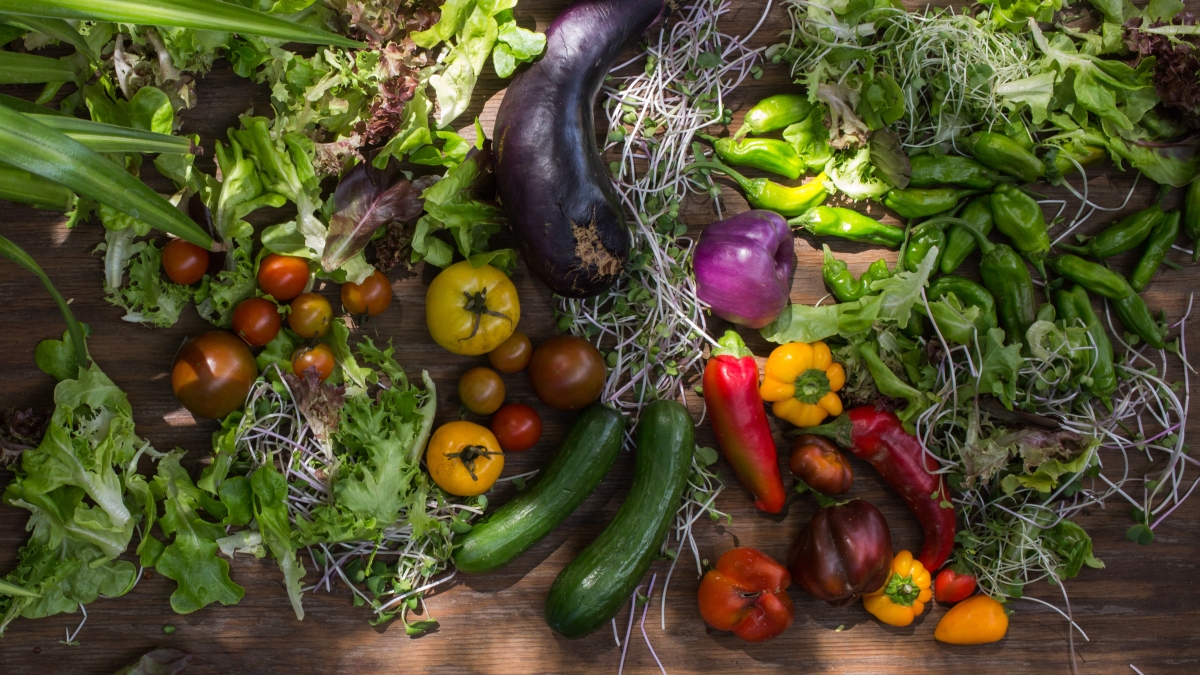Sacrifice is a fact of life. We make sacrifices for our families, our work and even our diets.
This Sunday, Oct. 1, as herbivores everywhere celebrate World Vegetarian Day, they’ll be happy to know that their dietary sacrifices may have the added benefit of contributing to long-term happiness.
“When people choose plant-based diets, oftentimes there are multiple motivators going on,” said Christopher Wharton, interim director and associate professor of nutrition at Arizona State University’s SchoolThe School of Nutrition and Health Promotion is part of the College of Health Solutions. of Nutrition and Health Promotion.
Those motivators could include health, ethics and sustainability.
“This leads to a question about how people … feel a sense of fulfillment from the food that they eat,” Wharton said.
He and a group of researchers at ASU’s Food Systems Transformation Initiative (FSTI), a unit of the Julie Ann Wrigley Global Institute of Sustainability, recently finished collecting data on a study looking at food in terms of eudemonic happiness (long-term fulfillment) instead of just hedonic happiness (immediate gratification).
It’s something nobody had ever looked into before, he said, and FSTI is making it — and other similar studies — possible.
“FSTI is focused on small-scale agriculture, the environmental impacts of diet, as well as the health outcomes in relation to diets that could potentially be more plant-based,” Wharton said.
“So we are conducting lots of studies, and we’re working with community organizations to promote local agriculture, support small-scale agriculture, and to look for ways to help people improve their diets while being sustainable at the same time.”
Another ongoing study is geared at helping people set better, more attainable goals when trying to switch to a plant-based diet.
It will be about a month before researchers at FSTI have any definitive findings on the food and fulfillment study, but they suspect that restricted diets — such as vegetarian, vegan and pescatarianA pescatarian diet is one that is mostly plant-based but sometimes includes fish. diets — “may actually lead to increased eudemonic happiness” because of the knowledge that the associated sacrifices will have positive effects on bigger-picture issues.
On a recent early autumn Saturday morning, Wharton took a trip to the Gilbert Farmers Market to talk to ASU Now about the benefits of plant-based diets and supporting local agriculture.
Video by Deanna Dent/ASU Now
Wharton visits the market about every other weekend. With an interest in nutrition and sustainable living that began with undergraduate research into phytochemicalsPhytochemicals are compounds in fruits and vegetables that aren’t necessary for health like vitamins and minerals are, but that do help stave off disease., led to master’s and doctoral research in nutrition communication, then to post-doc work at Yale on food policy and finally ended up in food systems at ASU, “people’s ability to make healthy choices, as well as sustainable choices” is what Wharton spends most of his time thinking about now.
“If you’re really interested in sustainability and you’re really concerned about the environment … one of the areas you can have the greatest impact is in your own diet,” Wharton said. “And one strategy for being more healthful, as well as being more sustainable, is to go local and eat more plant foods.”
Though some may think that's easier said than done, Wharton points out that lots of farmers markets and purveyors of locally produced food nowadays offer pre-washed bags of fruits, veggies and salad mixes.
“There are actually products like this that don’t need any prep at all,” he said. “All you need to do is reach in, grab a handful of greens, drop that in with some salad dressing, maybe a couple other things, and you’ve got yourself a delicious salad.”
Aside from health benefits, such as a reduced risk for cardiovascular disease and a lower BMI, increasing your plant food intake is good for the environment. The amount of energy it takes to produce protein from meat is about 10 times the amount of energy it takes to produce protein from plants, Wharton said.
“Animal proteins also require 17 and 26 times the land and water resources as would plant proteins,” he said.
But meat eaters need not fret.
“You don’t necessarily have to be entirely vegetarian or vegan to elicit a number of these benefits,” Wharton said. “In fact, you can be generally plant-based and still eat meats or other types of animal foods [occasionally]. … It’s really a proportionality issue.”
Americans on average get about 30 percent of their daily calories from animal foods.
“This is not necessarily problematic,” Wharton said, “but if you want to increase potential benefits to your health, as well as benefits to the environment, one thing you can do and that researchers have actually suggested in recent studies, is to decrease the total calories per day that you’re consuming from animal foods” from 30 percent to about 10 to 15 percent.
And of course, there’s the benefit to your fellow man. When you eat locally produced food, Wharton said, “You’re supporting the farmers who are growing these foods, and all the people they employ. So there’s an aspect of community connectedness, engagement and community development, in terms of economic development and jobs.”
More Health and medicine

New initiative aims to make nursing degrees more accessible
Isabella Koklys is graduating in December, so she won’t be one of the students using the Edson College of Nursing and Health Innovation's mobile simulation unit that was launched Wednesday at Arizona…

Reducing waste in medical settings
Health care saves lives, but at what cost? Current health care practices might be creating a large carbon footprint, according to ASU Online student Dr. Michele Domico, who says a healthier…

ASU offers bilingual counseling to Spanish speakers
Arizona is one of the five states in the nation with the highest percentage of Hispanic residents, according to the U.S. Department of Health and Human Services Office of Minority Health, and …


